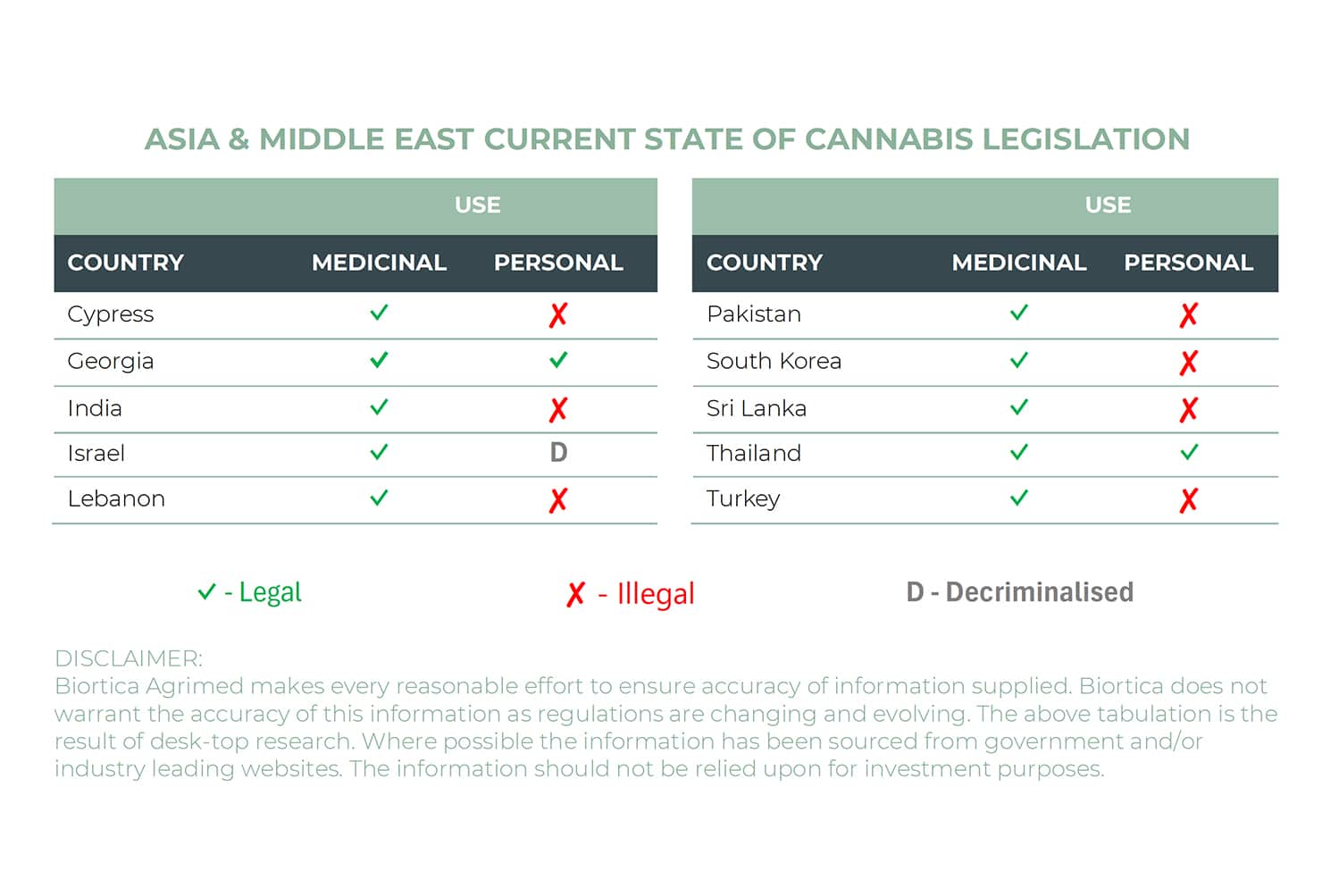
Medicinal Cannabis – Asia & Middle East
Many nations … but only now at the starting line
We’ve combined the two regions – Middle East & Asia into one report – why?
While these two regions lag behind the rest of the world, however momentum is building to normalise cannabis consumption. Out of a total of 48 countries identified by Biortica, only 2 – Georgia and Thailand – have so far legalised cannabis for both medicinal and personal use.
A further 8 countries have legalised medicinal cannabis only, although Israel has decriminalised its personal use. Interestingly, Israel has the highest per capita cannabis consumption globally.
Legal status for all 10 countries is detailed in the table above.
A couple of interesting observations have come to light. In Sri Lanka, medicinal use is permitted, but is restricted to cannabis’ use in Ayurvedic medicine. An ancient herbal based healing discipline – over 3,000 years old – developed in India, ayurvedic preparations have been bench-marked against modern conventional chemical pharmaceuticals. In documented clinical trials, natural herbal ayurvedic medicines are said to exhibit equivalent efficacy.
The word Ayurvedic is derived from the Sanskrit words ayur (life) and veda (science, knowledge). The Ayurveda Act of 2023 made it legal to also cultivate cannabis for this use.
In India personal use of cannabis hasn’t yet been legalised, but consumption of Bhang, is allowed. Usually consumed during the Hindu religious holiday of Holi, the bhang beverage is prepared from fresh cannabis leaf, nuts, seeds and spices and usually sold in government operated stores. There are many recipes for bhang, but toasting the leaf to increase its effect, may go part of the way to explaining its popularity. We suspect the real reason is that some of the trichomes from the flower somehow find their way into the beverage, but who knows for sure!